Dental Infection
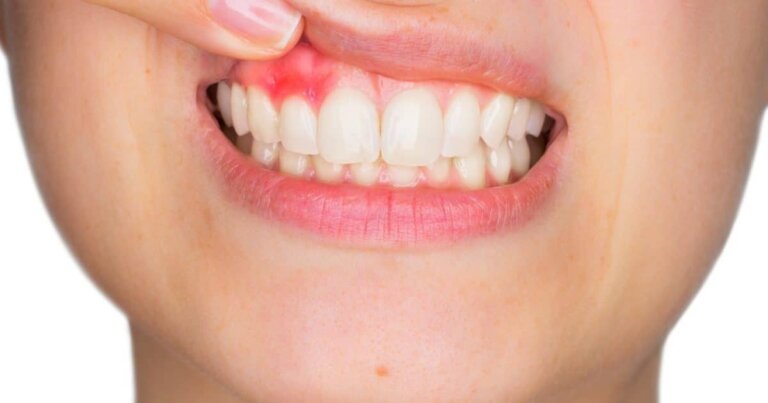
What Is Dental Infection?
Dental Infection, also known as a tooth or gum infection, occurs when harmful bacteria invade the tissues of the mouth, causing inflammation and pain. These infections can range from mild to severe and may affect different parts of the mouth, including the gums, teeth, and jawbone. Dental infections are a common dental problem that can lead to serious complications if left untreated, such as tooth pain, swelling, tooth loss or the spread of infection to other parts of the body.
Before you contact a Toronto dentist to examine your case of Dental Infection, there are some things you should know as a patient:
- Why Do I Have Dental Infection?
- Signs And Symptoms Of Dental Infection
- Treatment Options For Dental Infection
- How To Prevent Dental Infection
- Managing Dental Infection Until You Can See The Dentist
If you have questions about Dental Infection or other dental problems, please contact us for more information.
Why Do I Have Dental Infection?
Understanding the underlying causes of dental infection can help you take steps to prevent future infections and maintain good oral health. Here are some common reasons why dental infection may occur:
- Poor Oral Hygiene: Inadequate brushing and flossing can lead to bacterial buildup, causing tooth decay and gum disease, which may result in infection.
- Tooth Decay: Untreated cavities can progress and reach the inner pulp of the tooth, leading to an infection.
- Gum Disease: Advanced gum disease can cause pockets of infection to develop, resulting in dental infections.
- Failed Root Canal Treatment: In some cases, a previous root canal treatment may not effectively remove all bacteria, leading to a persistent or recurrent infection.
- Cracked or Broken Teeth: Teeth with cracks or breaks can provide an entry point for bacteria, increasing the risk of infection.
- Pericoronitis: Pericoronitis occurs when the tissue surrounding a partially erupted tooth becomes infected, often affecting wisdom teeth.
By addressing these underlying causes of dental infection, you can help prevent future infections and maintain good oral health. Regular dental check-ups and cleanings, along with a consistent oral hygiene routine, can go a long way in preventing dental infections. For more information about Dental Infection, please contact us.
Signs And Symptoms Of Dental Infection
Dental infection can cause a variety of symptoms that can vary in severity. It’s important to be aware of the signs and symptoms of dental infection so that you can seek prompt treatment and prevent complications. Here are some common signs and symptoms of dental infection:
- Tooth Pain: Dental infection can cause pain in the affected tooth or gum, which can be mild to severe.
- Swelling: Swelling in the gums or face can be a sign of dental infection.
- Redness: Redness or inflammation in the gums or face can indicate a dental infection.
- Fever: A fever can be a sign of a more serious dental infection, particularly if it is accompanied by other symptoms.
- Bad Breath: Persistent bad breath can be a sign of dental infection, particularly if it is accompanied by other symptoms.
- Tooth Sensitivity: Tooth sensitivity to hot or cold temperatures can be a sign of dental infection.
- Pus: Pus or drainage from the gums can be a sign of a more serious dental infection.
If you experience any of these symptoms, it’s important to see a dentist as soon as possible. Prompt treatment can help prevent complications and promote faster healing. For more information about the signs and symptoms of Dental Infection, please contact us.
Treatment Options For Dental Infection
The treatment for dental infection will depend on the underlying cause and severity of the infection. Here are some common treatment options for dental infection:
- Antibiotics: Antibiotics may be prescribed to treat bacterial infections that cause dental infection.
- Root Canal Treatment: A root canal may be necessary if the dental infection has reached the pulp of the tooth. During a root canal, the infected tissue is removed and the tooth is sealed with an endodontic filling material to prevent further infection.
- Tooth Extraction: In some cases, a tooth may need to be extracted if it cannot be saved with a root canal. Your dentist should also discuss dental implants, bone grafting or dental bridges if you are looking for tooth replacement options.
- Abscess Drainage: If there is an abscess, the pus may need to be drained to relieve pain and pressure.
- Teeth Cleaning: Improving your oral hygiene routine, including regular dental cleanings, can help prevent future dental infections.
It’s important to see a dentist if you suspect you have a dental infection. With prompt treatment and good oral hygiene habits, most dental infections can be successfully treated and prevented in the future. For more information about Dental Infection treatment options, please contact us.
How To Prevent Dental Infection
Preventing dental infection is key to maintaining good oral health. Here are some tips to help prevent dental infection:
- Practice good oral hygiene: Keeping your teeth as clean as possible can help prevent dental problems that lead to dental infection. Brush and floss gently around the tooth. Rinsing your mouth with warm salt water or mouthwash can help reduce infection, inflammation and alleviate toothache pain. You can buy any mouthwash available at your pharmacy or health foods store. Alternatively, you can mix a teaspoon of salt in a cup of warm water and swish the solution around your mouth for about 30 seconds before spitting it out.
- Limit sugary and acidic foods: Sugary and acidic foods can contribute to tooth decay and gum disease, which can lead to dental infection.
- Wear a mouthguard: If you play contact sports or grind your teeth, wearing a mouthguard can help protect your teeth from injury.
- Get regular dental check-ups: Regular dental check-ups can help detect and treat dental problems before they develop into more serious conditions like a dental infection.
- Treat dental problems promptly: If you have a cavity or gum disease, seek treatment as soon as possible to prevent further damage to your teeth and gums.
- Quit Smoking: Smoking can increase your risk of gum disease and tooth decay, which can lead to dental infection.
By following these tips, you can help prevent dental infection and maintain good oral health. If you suspect you have a dental infection, it’s important to see a dentist as soon as possible to prevent complications and promote faster healing. For more information about how to prevent Dental Infection, please contact us.
Managing Dental Infection Until You Can See The Dentist
If you suspect you have a dental infection, it’s important to see a dentist as soon as possible. However, if you can’t get an appointment immediately, there are steps you can take to manage the infection until you can see a dentist. Here are some tips to manage dental infection:
- Practice good oral hygiene: Keeping the area around the dental abscess as clean as possible can help prevent further spread of infection. Brush and floss gently around the affected tooth. Rinsing your mouth with warm salt water or mouthwash can help reduce infection, inflammation and alleviate toothache pain. You can buy any mouthwash available at your pharmacy or health foods store. Alternatively, you can mix a teaspoon of salt in a cup of warm water and swish the solution around your mouth for about 30 seconds before spitting it out.
- Apply a cold compress to your cheek: A cold compress can help reduce swelling and numb the area.
- Use Over-the-Counter Pain Medication: Over-the-counter pain medication, such as acetaminophen or ibuprofen, can help relieve tooth pain or sensitivity from a dental infection. You are also welcome to use over the counter pain relievers such as ibuprofen (Advil) or acetaminophen (Tylenol). Ask your dentist what dosage is right for you, but if you do not have a pre-existing medical condition of allergies, 1000mg acetaminophen (Tylenol) with 600mg ibuprofen (Advil) every 4-6 hours or as needed is a very powerful combination.
- Avoid hot or cold foods and drinks: Eating or drinking hot or cold substances can increase sensitivity and pain related to dental infection.
- Avoid chewing on the affected side: Chewing on the affected side can increase pain and pressure on the abscess. Favor eating soft foods.
It’s important to note that these tips are only meant to manage symptoms until you can see a dentist. For more information about how to manage Dental Infection, please contact us.
We also think you’ll like…
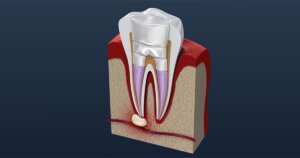
Root Canal Treatment
Root Canal Treatment What Is Root Canal Treatment? If you’ve been told that you need a Root Canal Treatment, you might be feeling a bit
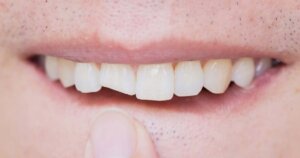
Missing or Loose Tooth Filling
How To Fix My Missing or Loose Tooth Filling What Causes A Tooth Filling To Fall Out? If a piece of your Tooth filling is
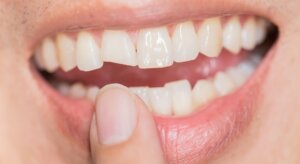
Cracked Tooth
Cracked Tooth What Is A Cracked Tooth? A Cracked Tooth is a common dental problem that can happen to anyone at any age. It occurs
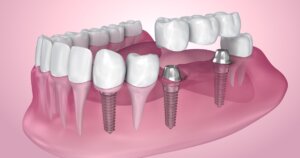
Dental Implant Crown Home Care Instructions
Dental Implant Crown Home Care Instructions How To Care For Your New Dental Implant Crown The Dental Implant Crown is the prosthetic component of the
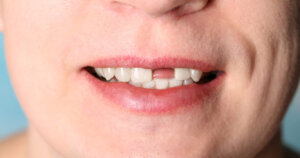
Missing Tooth
Missing Tooth What Is A Missing Tooth? A Missing Tooth refers to a condition where a tooth is no longer present in the mouth, either
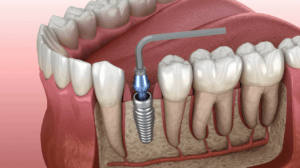
Immediate Dental Implant Placement
Immediate Dental Implant Placement What Is Immediate Dental Implant Placement? Immediate Dental Implant Placement is a revolutionary approach towards dental implants that offers numerous advantages

